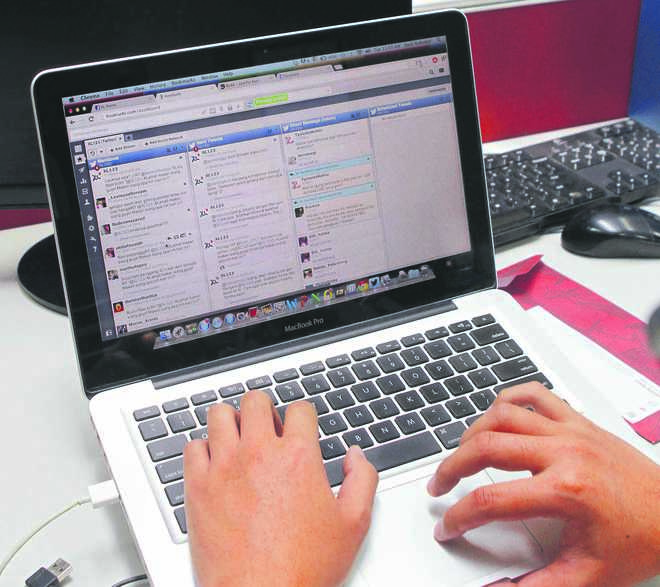
B Sivakumar
It took a good 12 days and the help of a steamer boat for the news of President Abraham Lincoln's assassination to cross the Atlantic. The trivia goes that the news from Washington to New York reached after the mailer from New York had left the port and hence a boat was sent in hot pursuit of the mailer to pass the news of Lincoln's assassination. To add, Reuters claimed the credit for delivering the news first to the world albeit 12 days late!!
Fast-forward to nearly eight score years later, Lincoln's assassination would most likely have been captured on a Facebook Live or shared through Periscope on Twitter. More likely, a person thousands of miles away from Washington would have seen it live as it happened even before the President's staff and advisors knew what was happening. No arguments countering the credit for speed this information age has given all of us. Be it the run-up to the American elections, natural disasters (no pun intended in writing them together) or happenings in your circle of trust, none can deny the speed of connect post-millennium. The abundance of information available on the net, coupled with search tools that retrieve them in nanoseconds, has made the encyclopedia a thing of the past.
Social media is officially the largest media industry with a reservoir of information that is constantly under update. An open platform, where every individual dons a hat of writer, critic, photographer, commentator, publisher or sometimes a ghost watcher. It has created a platform for content where what you think, what you feel and what you write get published to the world of knowns and unknowns. Not just being published, it's shared and re-shared and has a cascading impact of a nuclear fission- type of information dissemination. The centre of this industry revolves around you as an individual and how you have made your life turn into an open book. Big Data is a catch-all term for the digital breadcrumbs you leave behind as you go about your daily life.
It is comprised of structured and unstructured data and plenty of analytic tools work over them to mark you a prospect or a potential customer. Businesses use this information to understand their customers better. Is it right or wrong to utilise that data is a separate legal and ethical debate. But what you choose to like, dislike, share and leave as footprints is an individual choice. While analytics can argue the benefit of such information to industry, identity theft and loss of privacy cannot be ignored. Multiple scams involving loss of identity, including the recent Mumbai call centre scam, point to how open have we become by acceptance of fine print on the net.
“Social media privacy” is an oxymoron in my opinion. If you are on the net, it's not private anymore. Every time you google for the best restaurant deal, share good news with your social media connects or tweet your mind, your “audience” is bigger than you know. Every online move leaves cyber footprints that are rapidly becoming fodder for research, without you ever realising it. Using social media for academic research is accelerating and raising ethical concerns along the way, as vast amounts of information collected by private companies are giving new insight into all aspects of everyday life. Try making a search for hotels in Bali and a target advertisement pops up on your social post the next time you visit. Call your family doctor or the same office colleague a couple of time and voila he may come up as a “people you know” in your social page soon. The public space is now turned into a behavioural laboratory and every one of us is fodder to the reservoir of information.
Not just analytics and complex search algorithms trail you, how many of us recollect the hundreds of friends we have on social media and the information sites we have shared our email ID and answers to the tough security questions posed to recollect the password. Increasingly, we are sharing more information about us to a wider audience than we would have done physically. If stalking is now an offence under the anti-harassment bill in many countries, ghost watchers of friends of friends and viewing photos is termed socially acceptable. Often it strikes me, would we share our wedding photos and wishing of happy birthday to our loved ones in front of the 300+odd friends in public? And if those friends happen to like our photos, these are viewed in turn by their friends whom we would barely be aware of. But that is what many of us do every day, thereby slowly turning our private lives into an open book.
The writer works in a bank based out Singapore. The views expressed are personal .



























